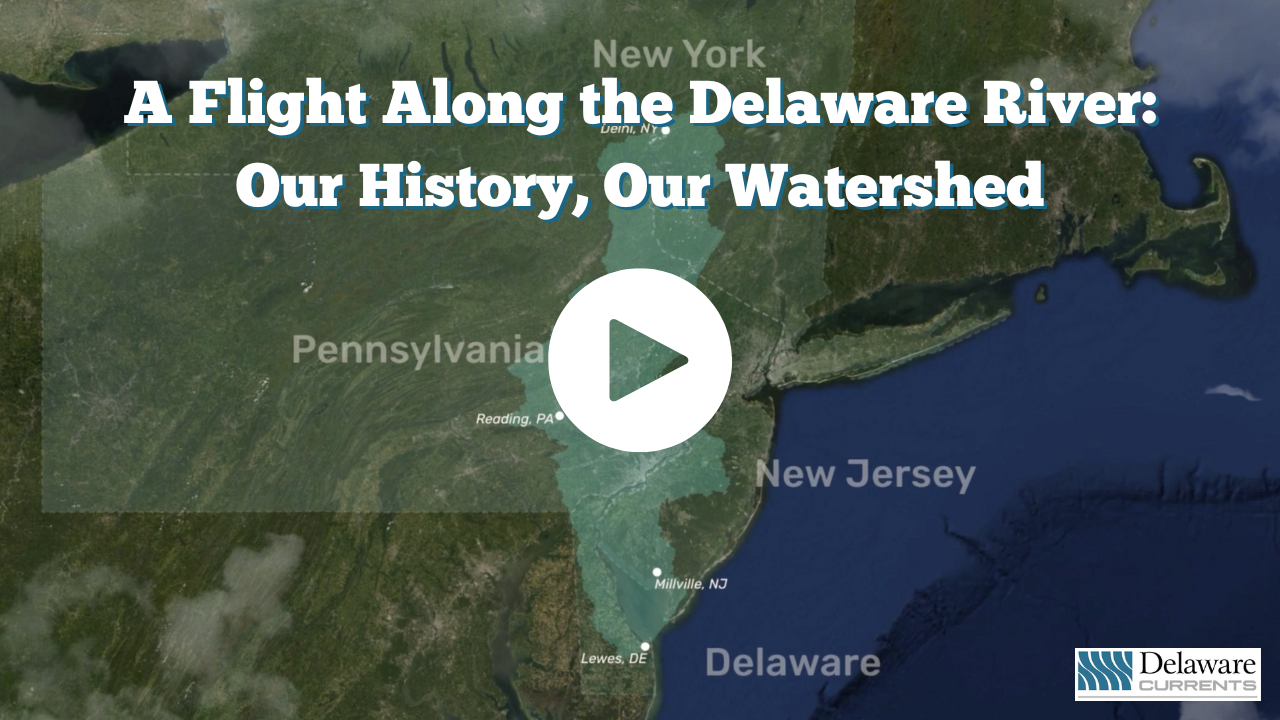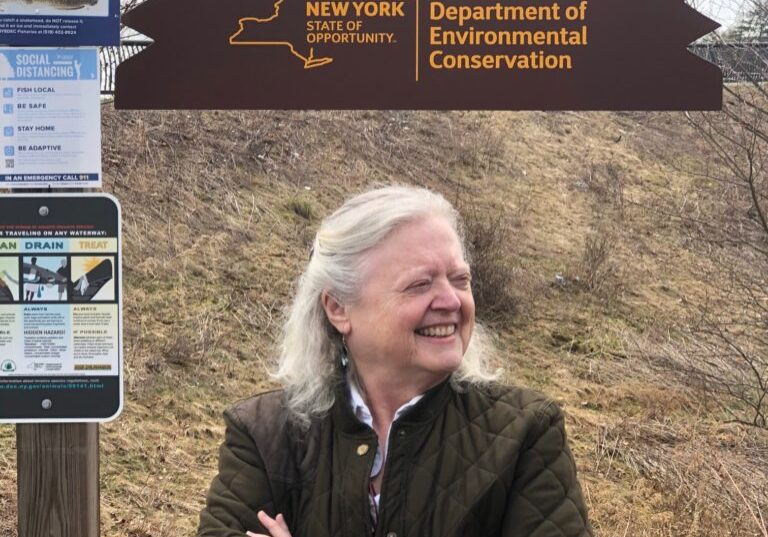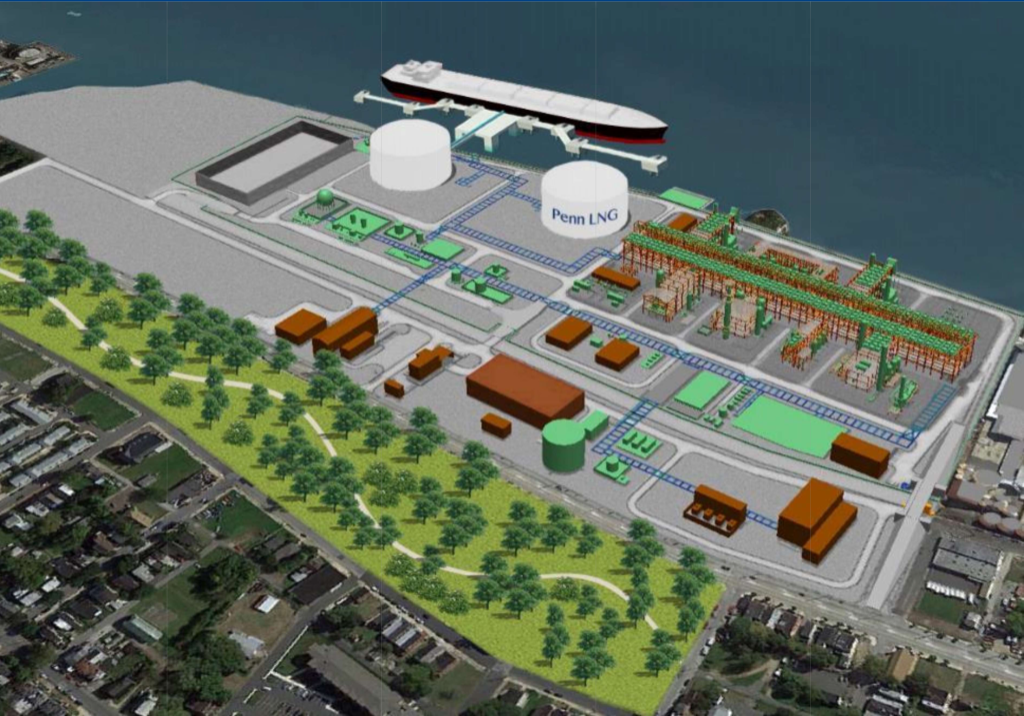
Guest editorial: Is New Jersey ready to deal with weather fluctuations?
| December 13, 2024
This op-ed was written by Christine Todd Whitman, a former governor of New Jersey and a former administrator of the U.S. Environmental Protection Agency. It was originally published at NJ Spotlight News on Dec. 3.
In October, back-to-back hurricanes deluged the Southeast, causing catastrophic flooding from Florida to the Carolinas including destruction to underlying infrastructure like roads and pipes.
It was a sobering preview of our shared future: As the planet heats up, we can expect heavier rainfall and more frequent floods. New Jersey experienced heavy rainfall earlier this year, but for the past two months, the state has been in a drought.
Climate change accelerates the unpredictability of weather events, impacting all of our water infrastructure, which is often invisible and underground.
Across our state, 21 communities experience “combined sewer overflows” or CSOs. In those areas, sewage and storm runoff flow through the same pipes. On a good day, the combined sewage and stormwater flow to a wastewater treatment plant, where it is treated before being released into a body of water. But on a bad day — and climate change guarantees more of those — the sheer volume of stormwater overwhelms the system, and untreated sewage flows directly into the nearest river or bay. On a really bad day, that contaminated mess floods streets and basements.
In New Jersey, the places experiencing CSOs are also “environmental justice communities.” These neighborhoods, which have a higher concentration of low-income residents and people of color, face multiple environmental threats, including Superfund sites, poor air quality and more.
CSOs add to the heavy burden of health and economic impacts those communities already bear. In contrast, the recent drought affected the entire state and even our neighboring states, Pennsylvania and New York.
The New Jersey Department of Environmental Protection reports, “During the past four months, New Jersey has experienced significantly below-average rainfall, which has contributed to diminished streamflow, reservoir, and groundwater levels. As a result of worsening water supply storages, the public is strongly encouraged to continue practicing wise water usage and voluntary water conservation at this time.”
The Delaware River Basin Commission recommends folks practice water conservation at all times, not just during drought. Our water resources are finite, and it is important to use them wisely and efficiently. All the water we share and use daily is one water; whatever happens upstream affects downstream.
Over the last 10 years, Jersey Water Works has brought together leaders throughout the Garden State to highlight water infrastructure challenges and develop solutions.
Its proposals are shaping utility operations, influencing regulations proposed by government agencies, guiding water infrastructure projects statewide, and even informing new legislation. The collaborative includes partners who are implementing solutions, partners who are providing funding and regulatory oversight, and partners on the ground working with affected communities.
For example, the Sewage-Free Streets and Rivers campaign works in communities with CSOs to ensure that residents’ perspectives are front and center. And many jurisdictions are exploring green infrastructure — stormwater-absorbing parks and green space — as a lower-cost solution with numerous community benefits.
In 2018, together with Hon. Jim Florio, I called for civic engagement in an op-ed when the collaborative emerged. Jersey Water Works serves as an organized network that addresses emerging issues in water infrastructure.
But we need to move faster, make our network wider and more inclusive, and ensure that the solutions are well funded. We could see continued CSOs for another 20 or 25 years. That is an unacceptable threat to public health and the quality of life for our state’s residents. Money, as always, is a problem: The cost of needed upgrades keeps going up and far exceeds the funding that’s currently available. The state of New Jersey must provide sustained infrastructure funding to overcome decades of underinvestment in our water systems. Federal funds from the Bipartisan Infrastructure Law can be allocated for this purpose.
The longer we wait, the more expensive the problem will be to solve. New Jersey taxpayers and ratepayers will bear those rising costs.
Finally — and importantly — we must ensure that today’s solutions can withstand tomorrow’s wetter, more dangerous climate and the dryer spells. Hurricanes Helene and Milton remind us that so-called 100-year storms now arrive with frightening regularity. Periods of heavy rains and drought conditions make it clear that New Jersey is not immune to such weather fluctuations.
We have a strong team of collaborators and well-thought-out plans. What we need now is a greater sense of urgency and funding to get the job done right. Today, we are dealing with a drought; tomorrow, we could be coping with the aftereffects of contaminated floodwaters. Regardless of the condition, let’s agree to work together on water infrastructure issues in New Jersey.


![DC_Image [Image 4_Assunpink Meets Delaware] meets Delaware The Assunpink Creek on its its way to meet the Delaware River. The creek passes through woods, industrial and commercial areas and spots both sparkling and filled with litter.](https://delawarecurrents.org/wp-content/uploads/bb-plugin/cache/DC_Image-4_Assunpink-meets-Delaware-1024x768-landscape-14f069364113da5e8c145e04c9f2367c-.jpg)



